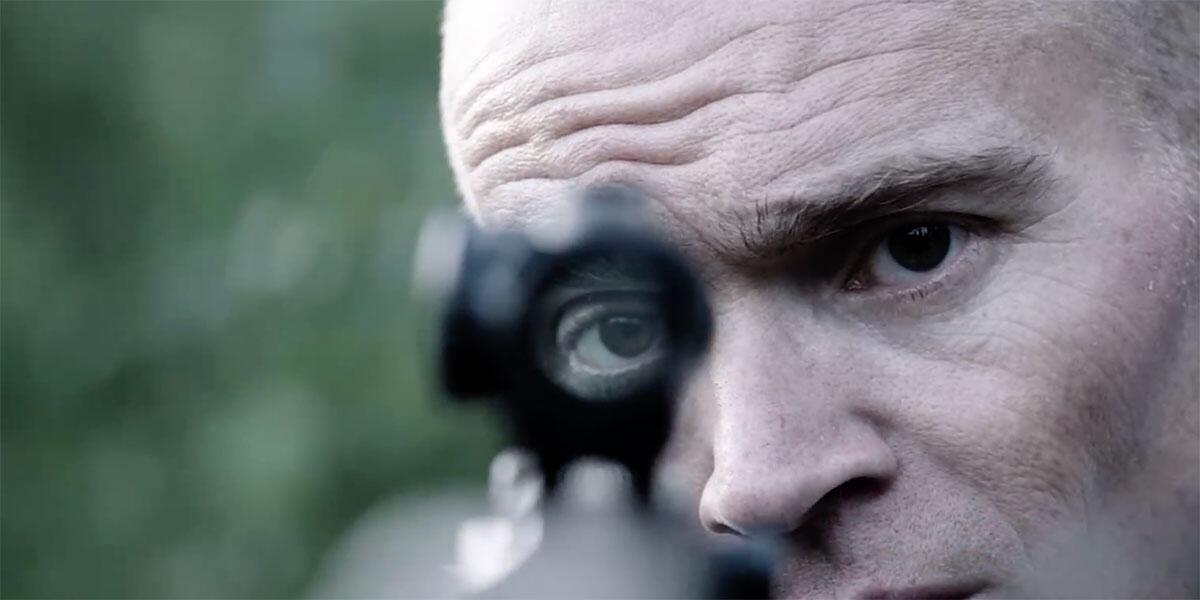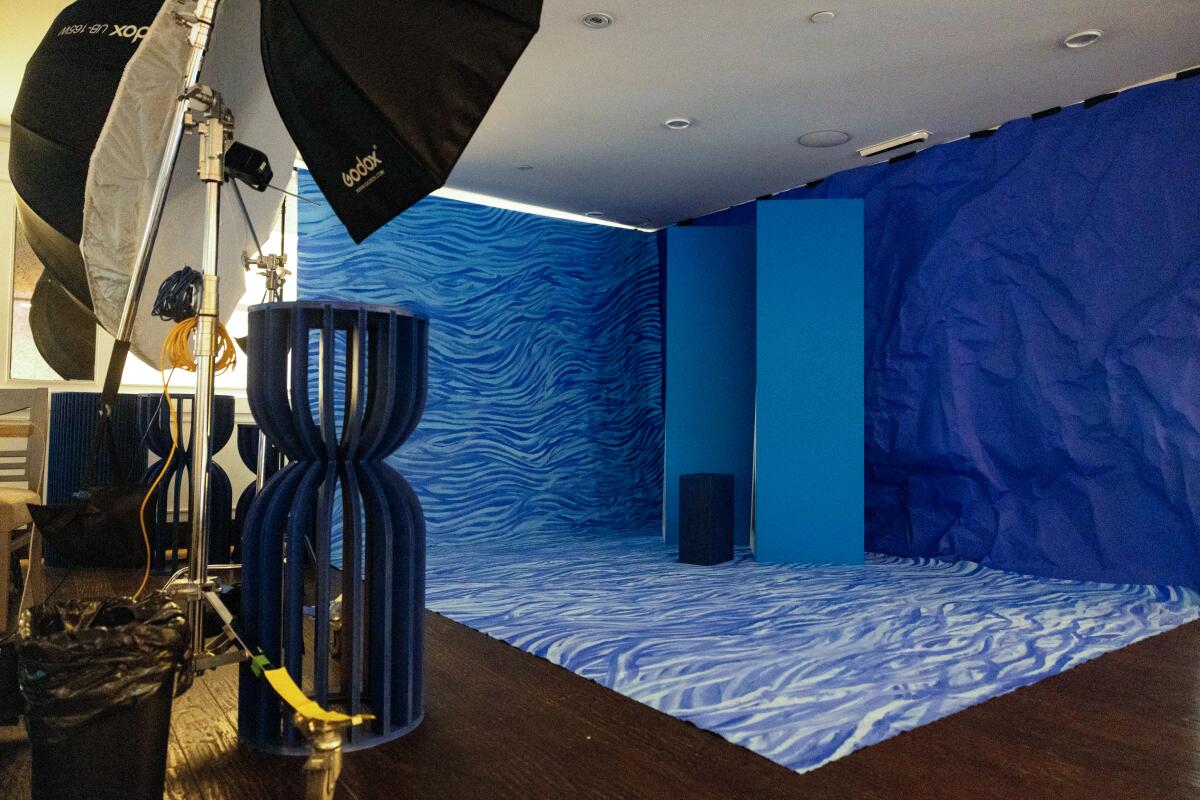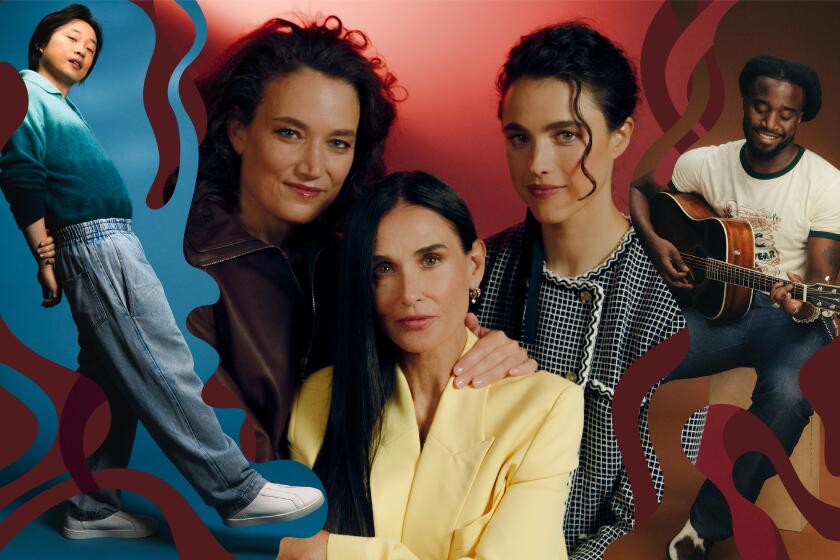After ‘a bumpy ride’ and a dig from Venice, TIFF is poised for a comeback

Welcome to a special edition of the Envelope newsletter, your comprehensive guide to awards season. We’re coming to you for the next four days from opening weekend of the 2024 Toronto International Film Festival, where the entertainment experts at The Times will bring you interviews, opinion and analysis from one of the marquee events that traditionally kick off the Oscar race. Sign up here to get it in your inbox.
From the Oscars to the Emmys.
Get the Envelope newsletter for exclusive awards season coverage, behind-the-scenes stories from the Envelope podcast and columnist Glenn Whipp’s must-read analysis.
You may occasionally receive promotional content from the Los Angeles Times.
The day’s buzziest premieres

Described by co-director Billy Corben as a “bats— tale of Florida f—ery” — or, in TIFF’s less explicit but equally bombastic synopsis, “Rambo meets Fyre Fest” — documentary “Men of War,” premiering Friday, unpacks Operation Gideon (a.k.a. Bay of Piglets), a failed Trump-era coup attempt against Venezuelan president Nicolás Maduro in which an ex-Green Beret, American mercenaries and roughly 60 insurrectionists allegedly tried to invade Venezuela by boat and overthrow Maduro. #SpoilerAlert: It ended in a lot of handcuffs.
Were you expecting anything less from Corben, whose mounted heads include cocaine cowboys, Jerry Falwell Jr. , Florida’s 2000 election fiasco and Alex Rodriguez’s doping scandal?
“What starts out as a geopolitical action thriller,” Corben tells The Times, “evolves into a surprising character study and exploration of what happens to Captain Americas and G.I. Joes when governments are done playing with them.”
History and the doc itself are still being made: The U.S. government seized the Venezuelan version of Air Force One a few days ago and the ex-Green Beret allegedly behind the failed raid was just released pending his October trial. Maduro himself may yet fall.
Accordingly, Corben says he and co-director Jen Gatien’s film is “not 100% locked yet. It’s basically now a work in progress.” Coup-bound boats move fast, but news moves faster. —Nicholas Ducassi
Other world premieres Friday include Gia Coppola’s “The Last Showgirl,” starring Pamela Anderson; Mike Leigh’s “Hard Truths,” and Andrew Garfield and Florence Pugh‘s romance “We Live in Time.” See the full Friday schedule here.
READ MORE: Not just ‘Bonjour Tristesse’ with cellphones: At TIFF, a classic gets a modern update
An awards contender to watch for

Pedro Almodóvar, director (“The Room Next Door”)
Few filmmakers have explored the emotional lives of women as exhaustively — or as colorfully — as Almodóvar. For his first feature in English, “The Room Next Door,” the Spanish writer-director has recruited two actresses who feel instantly at home in his singular melodramatic universe: Julianne Moore and Tilda Swinton, who play New York writers and old friends who reconnect during a moment of crisis. Moore, in her first collaboration with Almodóvar, stars as Ingrid, the author of a bestselling book about her fear of death, who learns that her former colleague, Martha (Swinton, who previously appeared in Almodóvar’s short film “The Human Voice”) is battling cervical cancer. The women meet up and quickly discover that their bond remains strong despite years apart. When Martha learns that her treatments are failing, she asks Ingrid to accompany her on a holiday (of sorts) to an upstate house straight out of Architectural Digest, where she plans to spend a few weeks lounging poolside before taking a euthanasia pill to end her suffering. Martha is initially wary, but eventually agrees to the plan. Adapted from Sigrid Nunez’s novel “What Are You Going Through,” “The Room Next Door” lacks the wild narrative twists and turns that sometimes characterize Almodóvar’s work — it largely consists of Ingrid and Martha, catching up on the couch — and feels grounded by the universally relevant subjects of mortality and personal autonomy. Yet, rather than being a grim “cancer movie,” it is, as one would expect of Almodóvar, a pleasure to behold, with meticulously composed shots and bold pops of red, green and blue — beauty that feels particularly defiant in the face of the inevitable fate that awaits us all. —Meredith Blake
Looking for more in-depth coverage on all things Envelope?
Shop our collection of The Envelope magazines today.
Q&A of the day

The Toronto International Film Festival launched on Thursday with the opening night world premiere of David Gordon Green’s amiable comedy “Nutcrackers” starring Ben Stiller. Other notable world premieres in the coming days include Mike Leigh’s “Hard Truths,” Marielle Heller’s “Nightbitch,” Gia Coppola’s “The Last Showgirl,” Rachel Morrison’s “The Fire Inside,” David Mackenzie’s “Relay,” Janicza Bravo’s “The Listeners” and Ron Howard’s “Eden.” The festival will close with Rebel Wilson’s directorial debut, “The Deb.”
A little over a week before the launch of this year’s festival, TIFF Chief Executive Cameron Bailey and Chief Programming Officer Anita Lee spoke to The Times about this year’s program, the state of film festivals and a recent jab at TIFF from the head of the Venice Film Festival. —Mark Olsen
This has been a tumultuous year for film festivals around the world: Leadership changes at Berlin and at Sundance; the possibility Sundance is going to be changing locations; TIFF losing its longtime sponsor, Bell, and now Rogers stepping in. Can you give me some sense of what the last year has been like from inside the organization? With so much happening in the world of film festivals, what does that feel like?
Cameron Bailey: We’re all coming out of the pandemic, the whole world is, and lots of change happened with that. At the same time, you’ve got technological and cultural shifts in terms of the movie world, the rise of streaming that went along with the pandemic years of being inside on our sofas. And then also just challenges to the theatrical industry. When theaters were closed, our own theaters were closed for many, many months. Coming out of that, I think it was a little bit of a bumpy ride. Every organization has their own specific circumstances as well, as did we. Some of it was just natural organic change, and some of it was a result of all of these things happening at once. We’re fortunate in that we’ve been able to come out stronger. We’ve had a very good year this year. Our theaters are thriving year-round. We’ve got a great lineup at the festival. We know our audience is back because we’re tracking ticket sales already. Our memberships are up. So that’s all worked. But I would say the last 12, 18 months before that have been rough.
Anita Lee: From a programming perspective, [we’re] coming back from two very difficult COVID years and last year of course we were interrupted by the strike. We’re very optimistic for this year. It feels like we’ve actually had the opportunity to prepare and think about the balance that we want to see at the festival. And so we’re quite excited that without external disruption, we feel that we are presenting a programming slate for the festival that really represents the full spectrum that we would like to see.
Cameron, you and I have talked many times before and you are always diplomatic when you’re talking about the other fall festivals and relationships between the fests. Recently your colleague Alberto Barbera, artistic director at the Venice Film Festival, was a little less diplomatic when he said in an interview, “There’s almost no press in Toronto,” and that Venice is a much better platform to launch a film. I’m curious what your response is to those comments.
Bailey: I think the thousands of people covering the festival in Toronto would be surprised to have that kind of remark made. All of us who run festivals are trying to find the best movies we can and present them to audiences and really show how important it is to be able to bring films to film culture and to the industry. And the media’s a big part of that. We all have our different ways of doing it. We might describe it in different ways, but I think in a world where people have so much more choice than they used to, and are sometimes paralyzed by that choice, festivals become especially important. You want to know, “What are the key films that I have to pay attention to this year? What are the ones that are going to be most worth talking about, most exciting, most transformative?” We’re all trying to do that at film festivals and I think that’s something to be celebrated.
Anita, how do you grapple with the behind-the-scenes competition with Telluride and Venice and New York?
Lee: I always reinforce the fact that we’re very different festivals, especially with Toronto being such a large public film festival. And I think that really influences us in terms of our approach to programming. Of course, there are films and filmmakers that, whether it’s premiered at Venice or at Cannes, we want to bring to our audiences. But I think we are also very clear on what we can do for film launches and our public audience is such a bellwether of conversations to come. There is, of course, this friendly and sometimes slightly more competitive competition. But I think at the end of the day, each festival is very, very different. And most films and stakeholders we work with understand the difference.
The strategy that you have of programming films that just premiered at Venice or Telluride on Monday or later during TIFF, is that something you’d ever reconsider? I’ve seen a number of people note, for example, that Jason Reitman’s “Saturday Night” isn’t playing until Tuesday, and it seemed like it would’ve been such a natural fit on Saturday night.
Bailey: The reason behind it basically, and it goes back probably a decade or more now, is to try to protect some space for the films that are coming as world premieres in the first half of the festival. And it’s not for every venue. It’s really just for our largest venues. That allows those films to really have that spotlight because this is the very first time anyone will see them.
Another title I wanted to ask about specifically is Angelina Jolie’s “Without Blood.” When the announcement came out for the galas and special presentations, it wasn’t in the headlines of the press release and you had to read quite far down to find it. And it’s playing a relatively small venue at the festival instead of one of the larger houses. With that film in particular, is there a reason that it seems like it’s coming in under the radar?
Bailey: I wouldn’t call anything Angelina Jolie does under the radar, honestly. This is a film that is very much in line with the other films she’s made as a director, which is very much about the impact of war and conflict on people, and especially women. This is probably her third film that’s specifically on that theme. It’s not a war movie at all. It’s primarily a film of ideas. It’s a chamber drama in many ways. It’s about the long-term impact of conflict on a woman who’s played as an adult by Salma Hayek. And she’s amazing in the movie. But we really do try to find the right venue in terms of the scale and the atmosphere for each film. And I think this is one that’s really going to be exactly right for the film and the big, deep ideas that Angelina Jolie is exploring in it.
Lee: It was also wanting to clearly distinguish her work as an actor and her work as a filmmaker, which is very, very different. And I will just share that you will hear a big, big announcement this week as related to Angelina Jolie in the festival. [One day after this interview, TIFF announced Jolie would be receiving a tribute award at the festival’s annual fundraising awards gala.]
Inside the L.A. Times Studio


(Jason Armond / Los Angeles Times)
Our team on the ground at TIFF will be capturing photos and videos of the directors, writers and stars coming through our studio Friday through Monday. Check back here in each edition of our Envelope: TIFF Daily newsletter for highlights.
Feedback?
I’d love to hear from you. Email me at glenn.whipp@latimes.com.
Can’t get enough about awards season? Follow me at @glennwhipp on Twitter.
Only good movies
Get the Indie Focus newsletter, Mark Olsen's weekly guide to the world of cinema.
You may occasionally receive promotional content from the Los Angeles Times.





